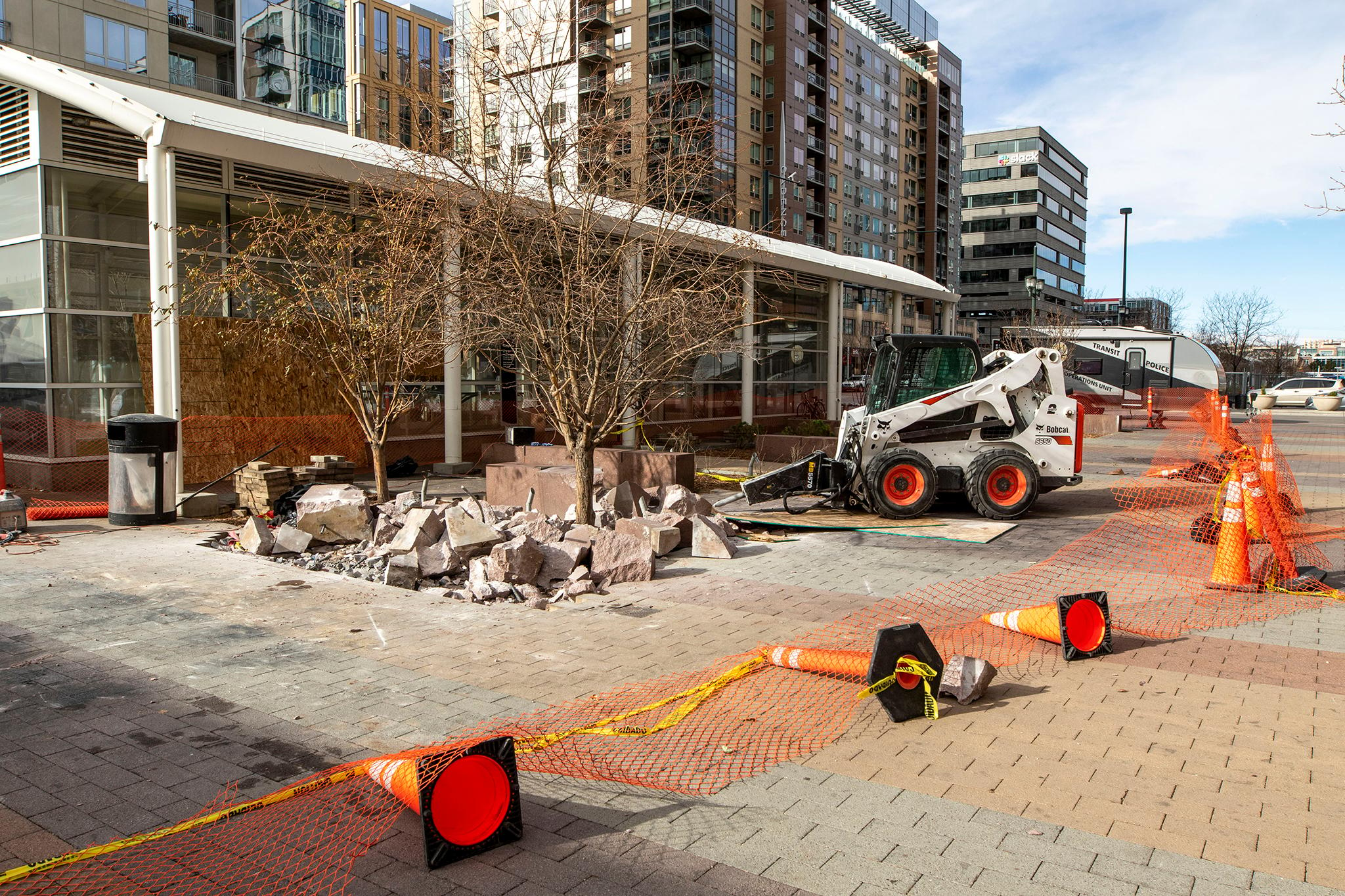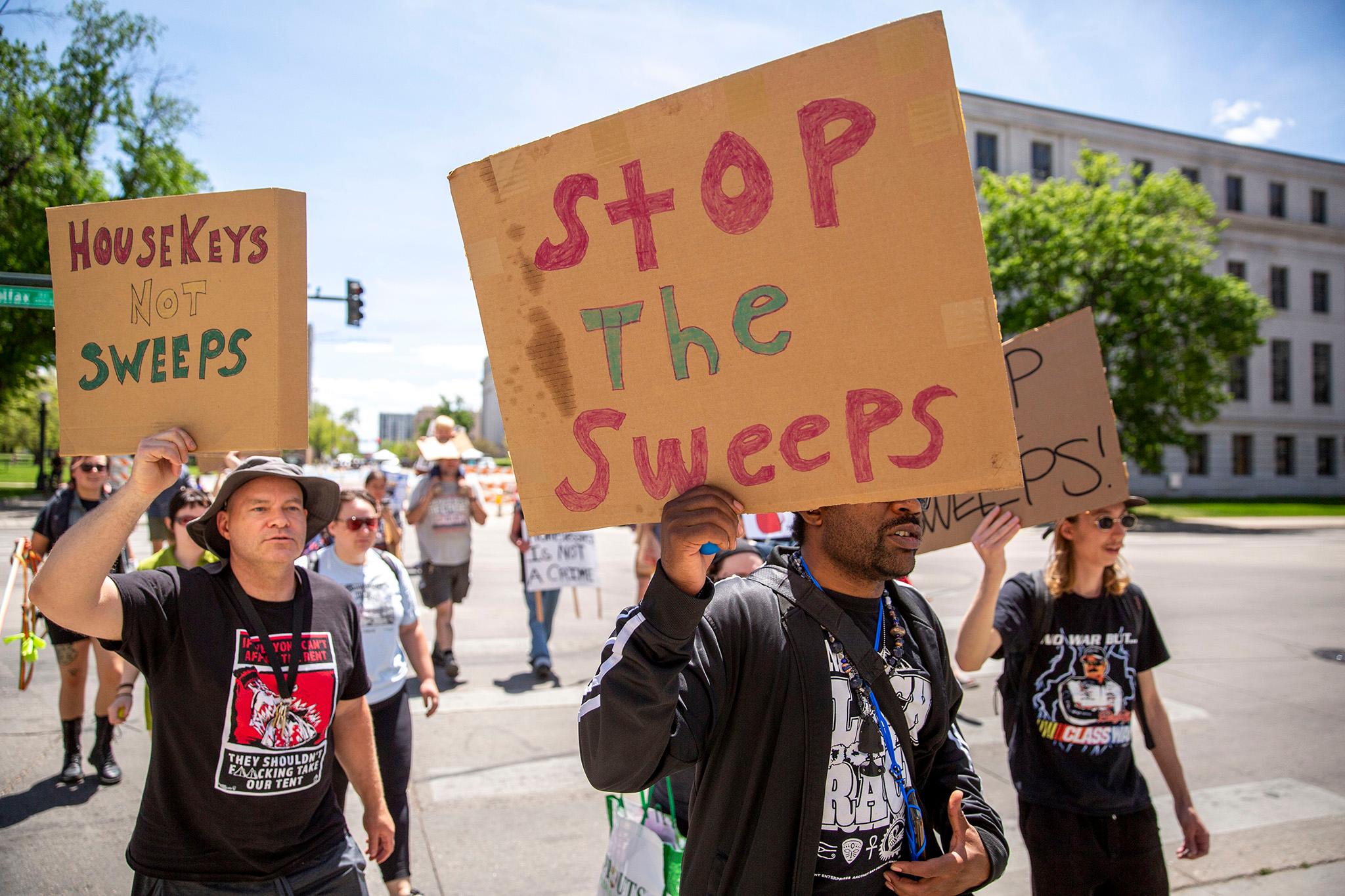The children's book "Everyone Poops" by Tarō Gomi might not seem like a natural topic for a City Council meeting on next year's budget, but at this week's public comment session on the 2023 budget, the book came up multiple times.
Dozens of residents shared their thoughts on Mayor Michael Hancock's proposed budget, which City Council will vote to finalize on Nov. 14, and two main worries about the city's spending rang clear: there's too much money for police and not enough for people experiencing homelessness.
That's where "Everyone Poops" comes in. One of the biggest issues advocates raised was about a lack of access to bathrooms, water fountains, showers and other basic necessities for people living on the streets.
"When municipalities such as Denver lack plentiful, accessible and well-maintained public restrooms and access to water and access to hygiene, the entire community feels the effect," said Renee Botta, an associate professor at University of Denver who has spent the past few years studying homelessness in the city. "The accompanying discrimination and the public ridicule that follows for these folks is just reprehensible."
Botta said the lack of access is particularly difficult for women and anyone who menstruates.
It's an issue advocates have been talking about for years and say is getting worse. A new bathroom on 16th St. touted in 2021 has been closed for months because the contractor hasn't been able to hire an attendant. Public seating, restrooms and common space around Union Station have effectively become privatized for paying customers. Bus concourse restrooms just reopened last week after months of being closed.

"This city is the by far absolute worst city I've ever lived in when it comes to bathroom access," said Ana Miller, a city resident who spoke at Monday's public hearing and who was unhoused for the past three years up until last month.
Emily Van Houweling, assistant professor at Regis University, has also studied sanitation and homelessness in Denver and abroad, and pressed concerns about water access.
"People often have to walk more than a mile for water, people do not have enough water to keep themselves clean or even take medicines," Van Houweling said, calling on the city to budget to fix and winterize water fountains. "Without water, you cannot have life, and public water access is at the heart of what it means to live in a democratic and inclusive city."
Both City Council and the Mayor have listed housing and homelessness as key issues in this year's budget, but advocates say it's not enough. Many speakers urged City Council to support proposed amendments by Councilwoman Candi CdeBaca that would divert funding from the police budget to things like housing and sanitation resources for people experiencing homelessness. In 2021, City Council voted down all proposed amendments to the budget and passed what was essentially the same budget Hancock proposed.
The other main budget concern came from police spending, which stands to reach record levels in the 2023 budget. For the first time in years, the budget includes money to recruit police officers and grow the ranks.
This year's main operating budget is up almost 11%, for a total around $1.66 billion. With that comes increased spending on the Department of Public Safety, which receives the most money of any one department from the general fund. It's slated to get over $611 million, with the next most expensive department, Parks, Recreation and Cultural, at around $151 million.
"This does not make me or others feel safer," said Marilynn Ackermann, member of Montview Boulevard Presbyterian Church, which works with Together Colorado, a multi-faith community organization. Multiple members of Together Colorado spoke about police spending at the meeting.
V Reeves, a member of the housing organization Housekeys Action Network, criticized the amount of money going to police and called for more homeless resources and housing. "You have an opportunity to move money in this budget to fund housing and health resources," Reeves said to Council.
Cole Hamilton spoke alongside other members of the Denver Aurora Community Action Committee, a new grassroots organization fighting injustice.
"I think that it is irresponsible to put more funds in the hands of a force that was ultimately responsible for the mass shooting that injured Jordan Waddy and six other innocent bystanders," he said, referring to the July shooting in LoDo in which police opened fire in a crowd while pursuing Waddy. "Let's give less money to cops and more money to the people that are harmed by them."
For those who did advocate for increased safety, it wasn't about police. A few people, including volunteer crossing guard Amy Kenreich, called for more funding for Vision Zero and Safe Routes to School, programs aimed at ending traffic-related deaths and making travel to school safer.
"We must prioritize the safety of all people using our roads," she said. "We hope that you will reconsider how much money is dedicated to car infrastructure in 2023."
City Council members have until Nov. 7 to submit amendments to the budget. Council will vote on the budget on Nov. 14.













